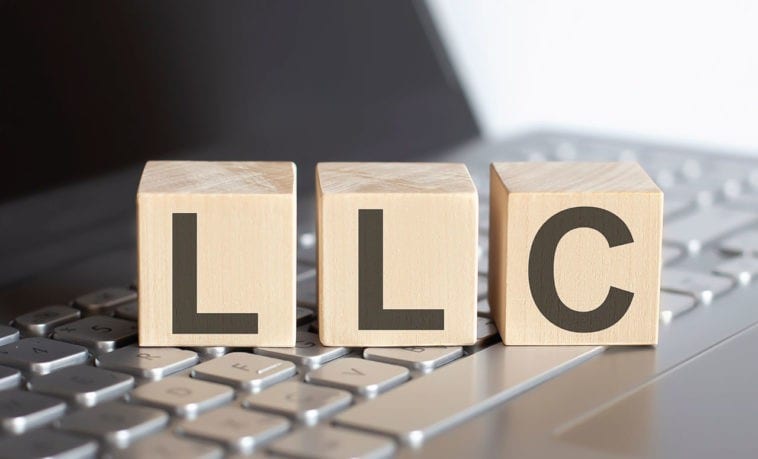Tax Deductions for Entrepreneurs
Tax Deductions for Entrepreneurs
Tax deductions for entrepreneurs reduce costs and increase profits. Awareness and understanding of these deductions is crucial to your taking full advantage of what’s available to you. The Tax Cuts and Jobs Act (TCJA) passed in 2018 made changes to self-employed tax deductions, with some being temporary and others permanent. The TCJA also introduced a qualified business income (QBI) deduction for pass-through businesses that pay taxes as individual taxpayers.
This deduction provides a significant benefit for sole proprietorships, partnerships, S corporations, and certain LLCs, trusts, and estates. You can deduct up to 20% of your QBI. However, tax deductions can be complicated, and it’s important to understand them to reduce your taxes and costs. In this blog post, we will discuss everything you need to know about tax deductions for self-employed business
What Are the Deductions for Self-Employed Workers?
Tax deductions for self-employed workers are expenses that can be subtracted from your adjusted gross income, which can lower the amount that you’re taxed. If your deductions are significant enough, they can even lower your income tax bracket, resulting in a lower tax percentage.
In the United States, there are two kinds of tax deductions: standard and itemized.
1. Standard Tax Deduction:
A standard deduction is a flat rate version set by the IRS that varies by year. Staying up to date on these changes is easier with professional guidance.
2. Itemized Tax Deductions:
On the other hand, if your deductible expenses exceed the standard deduction, you could save even more by itemizing your write-offs. There is no cap, but not all types of expenses are covered, and you’ll have to keep receipts and other documentation as proof for the IRS.
Remember that regardless of the type of tax deduction you choose, you need to file your personal income tax return by April 15. If that date falls on a weekend or holiday, the deadline is always set for the following Monday.
What are Eliminated or Changed Deductions?
Let me tell you about some tax deductions that have been eliminated or changed for self-employed business owners:
- You can no longer deduct entertainment and fringe benefits expenses on your taxes.
- The deduction for employees’ parking, mass transit, or commuting expenses has been eliminated.
- The domestic production activities deduction is no longer available.
- You can no longer deduct local lobbying expenses on your taxes.
- The state and local tax (SALT) deduction is now limited to $10,000 (or $5,000 if you’re married and filing separately).
- You can no longer deduct settlement or legal fees in a sexual harassment case if the settlement is subject to a nondisclosure agreement.
It’s also important to know that some key provisions, like the QBI deduction and SALT deduction cap, are set to expire in 2025. The standard deduction and income tax rates will also return to pre-TCJA levels. However, tax laws can change anytime, so it’s always a good idea to stay up-to-date on any changes that may affect your quarterly estimated tax payments.
Itemized Tax Deduction Forms you must know
As a self-employed business owner, you’ll need to file Form 1040 for your individual income tax return. If you choose to itemize your write-offs, there are other forms you must attach to your Form 1040. The two most common forms for itemized write-offs are Schedule A and Schedule C.
a. Schedule A
Schedule A is for personal deductions that fall under six categories, including medical expenses, taxes paid, interest paid, charitable contributions, casualty and theft losses, and other itemized deductions.
b. Schedule C
Schedule C, on the other hand, is for business expenses of self-employed individuals. This includes operating costs, equipment rentals, and business-related travel expenses. If a cost is for something that is mixed-use, like renting an office in your home, you can only deduct the business expense.
Common Deductions for Entrepreneurs and Self-Employed People
As a self-employed business owner, there are a lot of deductions that you can claim on your tax returns. Here are the most common ones:
- Home office: If you work from home, you can claim a percentage of your mortgage or rent and property taxes as a deduction. This only applies to the area of your home that you use for business.
- Utilities: You can claim a portion of your utility bills that you use for business, such as electricity, heating, air conditioning, phone service, and internet.
Equipment, supplies, and software: Any equipment, software, or office supplies that you purchase, rent, lease, repair, or maintain for your business can be claimed as a tax deduction.
- Training and development: You can claim expenses for education, seminars, and professional organization memberships that help you develop your skills and advance your career.
- Marketing: Advertising and marketing expenses, such as websites, flyers, and business cards, are all tax-deductible.
- Travel: You can deduct most business travel expenses, including transportation, accommodation, and car expenses. Gas used for business purposes is also claimable.
- Meals: You can claim a portion of your business-related meal expenses, up to 50%. This doesn’t include personal food-related expenses.
- Incorporation: You can deduct the fees associated with incorporating your business.
- Health insurance: If you pay for your own insurance, you may be able to claim your monthly premiums and those of your spouse and dependents.
- Other: Any necessary business expense, such as employee wages, benefits, and professional services fees, can be claimed as a deduction.
Tax Credit vs. Tax Deduction
Have you ever heard someone use the terms tax credit and tax deduction interchangeably? Well, it’s a common misconception! Tax credits and tax deductions are different things.
A tax credit means that you get a dollar-for-dollar reduction off the final tax amount you owe. For example, if you have a $1,000 tax credit, your tax bill reduces by $1,000.
Tax deductions, on the other hand, reduce the amount of income that you pay taxes on. Deductions lower your taxable income by the percentage of your highest federal income tax bracket. For instance, if you’re in the 22% tax bracket, a $1,000 deduction saves you $220 on your taxes.
Both tax credits and tax deductions reduce your tax bill, but they do so in different ways. Knowing the difference between these two can help you plan your taxes better and take advantage of all the deductions and credits available to you.
Conclusion
So, that’s all about tax deductions for self-employed business owners! While being your own boss and running your own business can be rewarding, it also means that you need to take care of your own taxes and deductions. However, with the knowledge of tax deductions and how to file them properly, you can save money and invest it back into your business.
Don’t let the process of filing taxes intimidate you. Take the time to review this guide and understand the deductions that you’re eligible for. Remember to keep accurate records and receipts to support your deductions, and don’t hesitate to seek professional help if you’re unsure about any aspect of the process.
By staying organized, knowing your deductions, and filing correctly, you’ll be well on your way to keeping more of your hard-earned money in your pocket. Happy filing!
As laws are constantly changing, it’s possible that you’re reading this article after a new change has take effect. For timely advice and counsel, schedule a free consultation.
Editor’s Choice –
Entrepreneurship: Funding, Marketing, And Growth Strategies
Financial Risk Management Strategies for protecting your business










